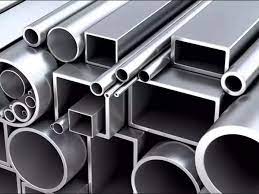Stainless steel is a versatile material that is widely used in various industries, including construction, manufacturing, and kitchenware. It is known for its corrosion resistance, longevity, and durability, making it an excellent choice for many applications. If you are in South Africa and looking for the best stainless steel manufacturer in south africa, here are some tips to help you make an informed decision.
1. Determine the Grade
Stainless steel comes in different grades, and each grade offers specific advantages. The most common grades used in South Africa include 304, 316, and 430. Grade 304 is the basic stainless steel and is suitable for general applications. Grade 316 is known for its increased corrosion resistance, making it ideal for marine environments or areas with high chloride exposure. Grade 430 is less corrosion-resistant but offers good thermal and electrical conductivity. Consider the specific requirements of your project to determine the most suitable grade for your needs.
2. Assess the Finish
There are many different stainless steel treatments, and each one affects the material’s look and functionality. Brushed, mirror, and satin finishes are the most popular ones. A brushed finish is appropriate for situations where aesthetics are not a top consideration despite having a drab look. A mirror finish, on the other hand, is highly reflective and gives a polished look. Satin finishes are somewhere in between, providing a smooth and lustrous appearance. Choose a finish that complements your project’s design and desired look.
3. Consider Corrosion Resistance
The ability of stainless steel to resist corrosion is one of its main benefits. The degree of corrosion resistance, however, might change depending on the grade. If your project requires the utmost resistance to corrosion, especially in aggressive environments, consider opting for grade 316 stainless steel. This grade contains molybdenum, which enhances its resistance to pitting and crevice corrosion caused by chlorides. For less extreme environments, grade 304 stainless steel should provide sufficient corrosion resistance.
4. Look for Certifications and Standards
When choosing stainless steel, it is essential to ensure that the material meets quality certifications and industry standards. Look for products that comply with international standards such as ASTM (American Society for Testing and Materials) or ISO (International Organization for Standardization). These standards guarantee that the stainless steel meets specific quality requirements and will perform as expected. Additionally, selecting materials from reputable manufacturers or suppliers will provide peace of mind in terms of quality and reliability.
5. Determine the Application
Consider the purpose and application of the stainless steel. Are you using it for kitchen appliances, construction projects, or industrial applications? Different applications may require different characteristics in terms of strength, heat resistance, or cost-effectiveness. For example, if you are in the food industry, you need stainless steel that is suitable for hygienic environments and has easy-to-clean surfaces. Identify your specific requirements and find stainless steel that aligns with them.
6. Compare Prices and Quality
While price is an important factor to consider, it should not be the sole determining factor when choosing stainless steel. The cheapest option may not necessarily be the best in terms of quality and longevity. Look for a balance between price and quality to ensure value for your money. Compare prices from different suppliers and determine what features and benefits you are getting for the price. Investing in high-quality stainless steel will save you money in the long run by reducing maintenance and replacement costs.
7. Seek Expert Advice
If you are unsure about the best stainless steel for your project, it is always wise to seek expert advice. Consult with stainless steel suppliers, manufacturers, or professionals who have experience in your industry. They can guide you in choosing the right grade, finish, and features based on your specific requirements. Their expertise can help you avoid costly mistakes and ensure that you select the best stainless steel for your needs.
Conclusion
Choosing the best stainless steel in South Africa requires careful consideration of factors such as grade, finish, corrosion resistance, certifications, application, price, and expert advice. By taking these tips into account, you can make an informed decision and select stainless steel that meets your project’s requirements in terms of quality, durability, and performance.



